“I’d like to be there when the sun implodes.”
In Germany of 2020, amidst breaking structures and fresh inspirations, a genre-defying star emerged from a dusty music drawer, thought to have been empty for the past 30 years: NILS KEPPEL. With his distinctive synth-infused sound, he managed to take the German underground scene by storm. Appealing to pre-reunited Berlin in the early 1980s, his music evokes a sense of longing and nostalgia for a time, more gritty, rebellious and free than anywhere today. Often hastly classified as Post Punk with influences from New German New Wave (NNDW), his genre-bending music fuels the boiling kettles of Berlin’s sub-culture. For their “Weekend Music Tip”, Número Berlin (Ellie & Cosima) spoke to Nils about his influences, life-performances and unique world view.
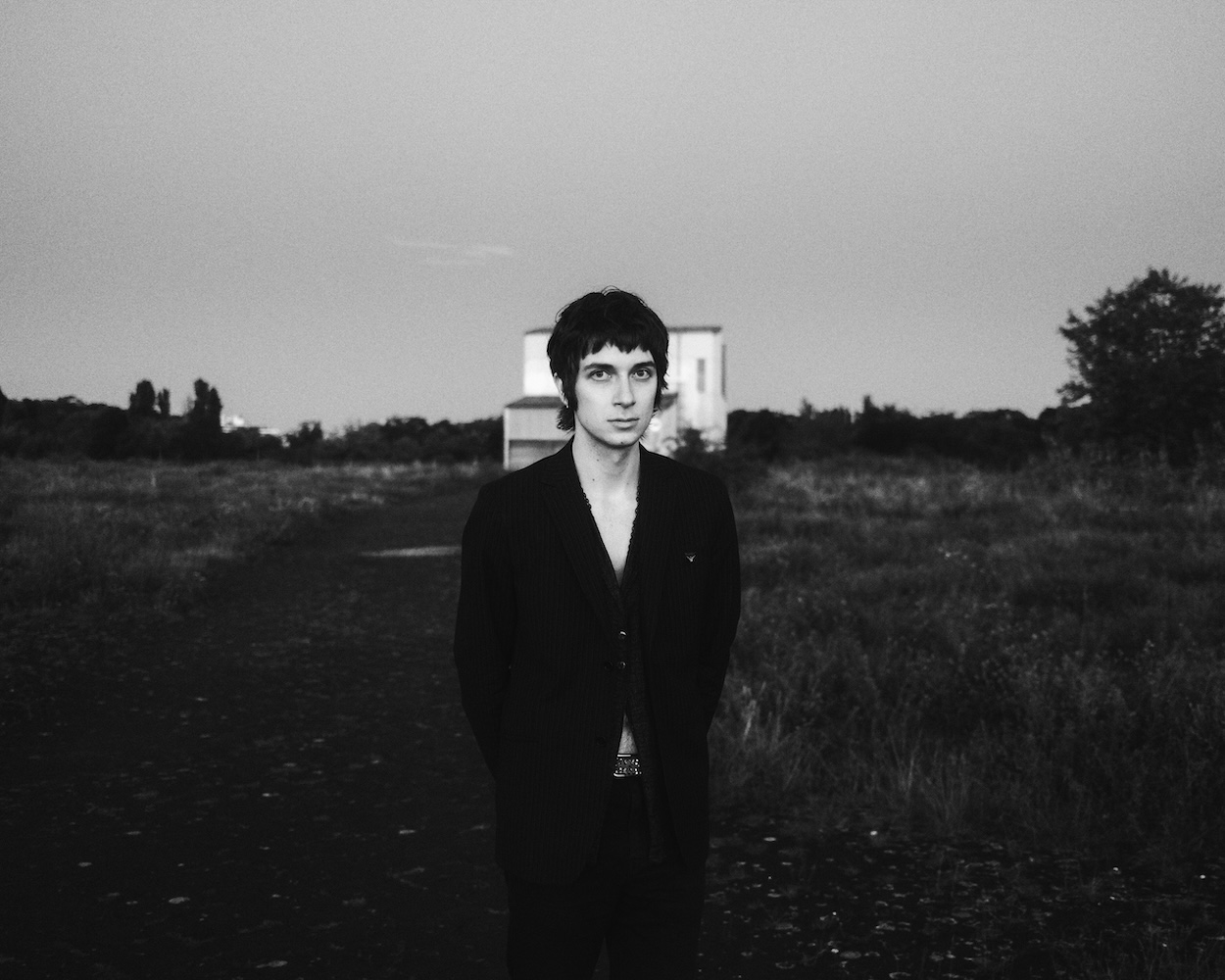
Nils: Fortunately I never had to revolt against my parental home. They were always very supportive. I think they just noticed at one point that I am just feeling much better mentally when I get to make music. They also knew how much work I put into it, generally. And they definitely preferred it to me just getting a 9 to 5 job and being unhappy.
Creating music was always a huge wish of mine, but I didn’t know it was actually possible. Because I grew up very isolated, in a small village, I thought that the people that actually get big with music only happened in the past. Or they had to come from big cities or needed someone to make it possible for them. I couldn’t even play any instruments. Only later did I realize that my skills to play a little guitar and bass are sufficient enough nowadays to write a demo and publish it. So I started uploading my tracks and some music magazine wanted to feature them. Suddenly “a lot of people” listened to it. I didn’t expect that. It was the internet, really, that made a thing out of it. I can imagine that I somehow manifested it, because I always fantasized about it as a kid, sitting in the car, listening to music, what it would be like to be that person performing on stage.
N: For sure. It wasn’t that forced. I never asked anybody for anything. I never went to venues and asked if I could play a gig there. Of course, if that’s your career path that’s totally ok, too! But then they came forward and asked me if I could play a gig. And then a booking agency approached me and told me they wanted to take care of things for me. That’s why I always just took every opportunity given to me. I am really just super content with that.
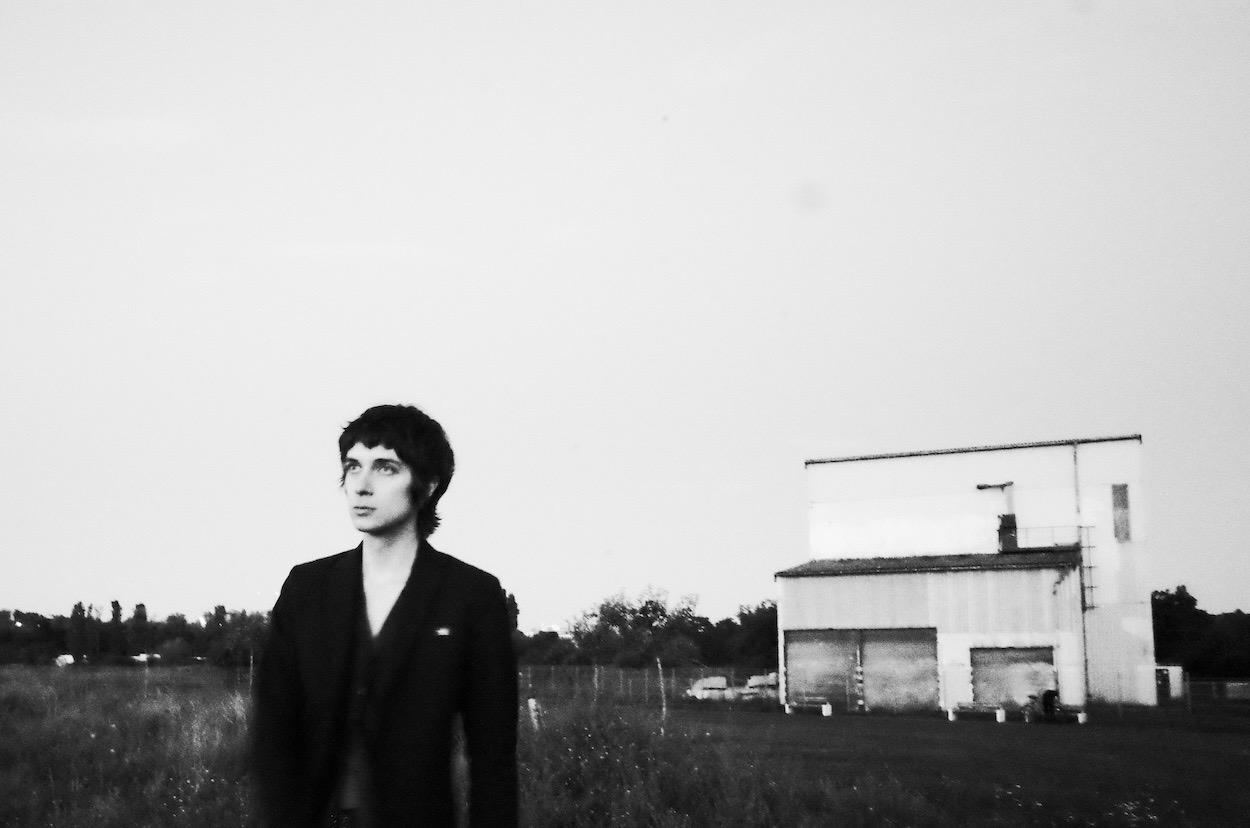
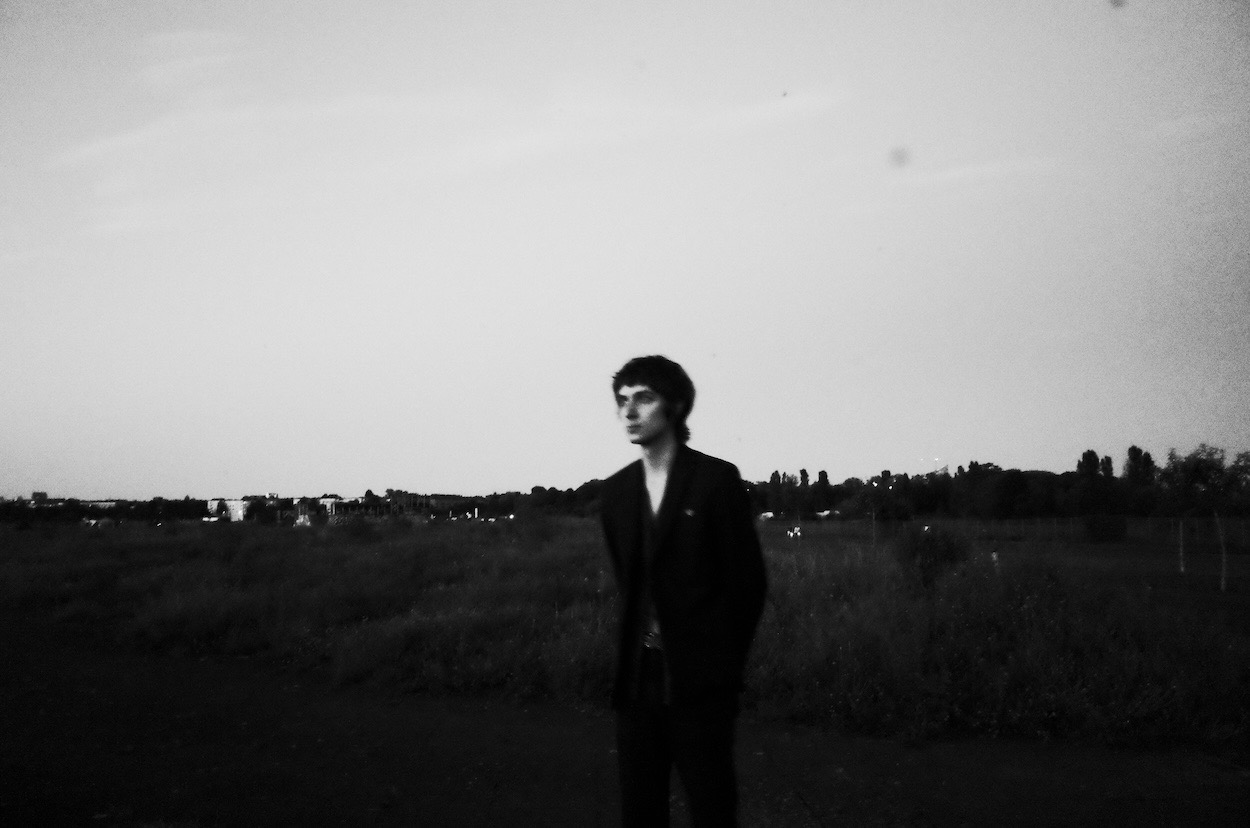
N: That’s really interesting. When you’re making the music, you’re often not thinking about these things actually. Those are mostly people from the outside, that put things in boxes or say and write about it. When I am sitting down at my desk and start putting together a demo, these things aren’t even crossing my mind. What is important to me, always, is that I don’t just make a song because it works well on the internet. I get the feeling that the things I have put out there sometimes vary greatly, stile-wise. Of course, there are people saying it’s New German New Wave (NNDW) or Post Punk. But I like to keep things open regarding genre. My new album once again has a very different sound. And the songs themselves also differ greatly from each other. The only red hook across all of them I like to keep an eye on, is that I myself enjoy listening to them.
N: I actually write very little. On my upcoming album are all the songs I wrote within the last year. Not many get thrown out. In the evening, I just sit down in my little music room with my laptop, and just try to play anything. Either I like it or I notice right away it’s not working out that day. And then I stop immediately. Because then I would associate this pressure of writing a song with the feeling of wanting to make music. And I don’t like that. But if it just sort of flows easily, then I finish the sketch of the song relatively quickly. It takes about an hour and then I have the song. But that’s a rare occurrence and it happens less and less. I have the feeling that it was easier for me to write music back in my hometown. Living in a loud and busy city, I just don’t have the desire anymore to be loud myself. Back in the village it was so suffocatingly quiet, I really needed to be loud.
There is so much music out there, and if people listen to me, which is already a privilege, then I don’t want to take up the time that is given to me by putting things out there I don’t actually feel like talking about. So I try to reduce it. Which is of course quite detrimental for my releases and marketing. (laughs)
N: It’s really important to me, yes. I notice that a song is good if I start walking around in my room and a vision of what the music video would look like starts forming in my head. I don’t overthink it that much. A film just starts rolling, then I know: Ok, this song works, it sucks me in. This was the case for an upcoming single. Being in my studio, I thought: I really need a scene with semaphore flags, even though that has nothing to do with the song. It just happened on its own.
I have Marina and Caroline Ida that always support me with this. Marina, I’ve known for three years now. She somehow had a song of mine in her playlist, then I followed her on Instagram. She posted in her story that she wants to film a music video, so I just sent her my first song, 222, and she said “let’s go”. I told her I had no money, but she wanted to do it regardless. We actually met just over there, at the Schrebergärten at Tempelhofer Feld. She came with her camera already loaded up and we started shooting right away. Since then, we’ve become really good friends.
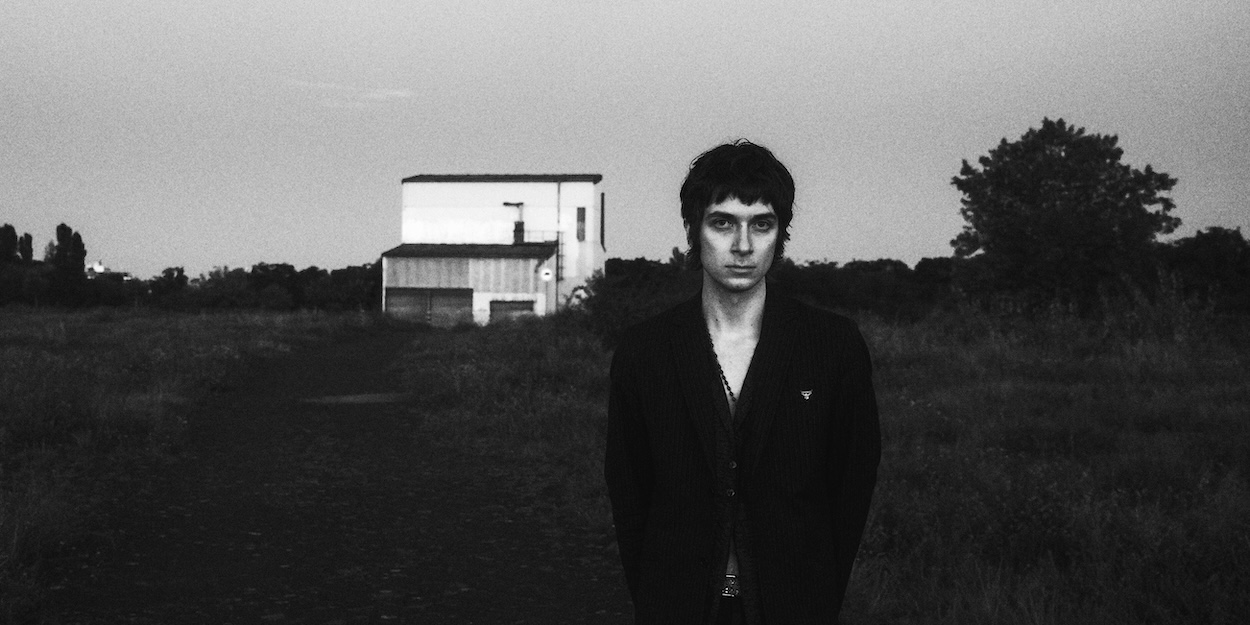
N: That’s definitely a very important movie for me. I watched it back when I was still living in my old village. 75% of my grandparents are from Berlin, so I always heard these stories about how the city felt back in the 1950s. It always seemed a very bleak place to me, and very far away. On top of that, I always struggled with anxiety issues. So it was never easy for me to simply go somewhere alone and experience a city by myself. But then I watched this movie and it just triggered this immense curiosity in me: That there are cities that enable you to do more than other cities. The movie motivated me to work on my anxiety and to eventually beat it.
I moved to Leipzig, because of course I knew that the Berlin portrayed in Wings of Desire no longer existed. There are other places where you can meet people who are working towards the same thing. Leipzig was just that. It clicked. It’s really way cheaper compared to Berlin. Many people I know say that Leipzig is the new Berlin. But then again, now people are saying, it’s Wuppertal or Chemnitz. “We have to move there.” Leipzig still works, but I also heard it was cooler ten years ago compared to now. It’s the same story every time. You can’t do what happens in that movie in Berlin any longer. But because we have more friends there, we always end up in Berlin sooner or later.
N: Apart from movies: Live-acts. For example, when I was fourteen, and most of the other boys in school started listening to Hip Hop, Rap and going to the gym, which I never did, I started watching live performances of Iggy Pop. Seeing these shows for the first time, I noticed many people that looked like me. I could identify with them. So, because that was only the case with about two other people in the village, I took refuge in this world of interviews. I discovered new ways to live that nobody told me about before. From that I also learned how to move on stage, for example.
I also didn’t know about small concerts before. I didn’t know you could play in front of only eighty to hundred people until I did it myself. And I certainly didn’t know that something like young bands still existed. I thought all of that had ended in the 1980s. Nobody played instruments anymore. I really had to find my people to put something together. Most of them had so much more experience than I had.
I noticed that songs I write from home might sound good on vinyl or when you stream them, but live… So I like to change things when I am with the group that I have right now. The tracks are still the things I wrote, but they just sound different when you play them live. I like that a song can be more than just a recording that you find on Spotify.
N: I try to keep them completely out of it. I would really like to have a collaborative band one day, but I think that’s a different project. For the project “Nils Keppel” I already had different members in the lineup. Still, most of the time they’re the same people. But I like to finish up the songs on my own, without outside influence, because there is this very specific image, or rather sound, I am working towards.
N: I just really, really like to play my music live. Across the whole spectrum. Last year we were the supporting act for an Austrian band called Bilderbuch. We ended up playing in the Vienna City Hall. The Rolling Stones had played there, and three weeks later Billie Eilish. And the day after we were playing at a festival in a 300-people-venue. I liked that. I noticed it makes a difference, also for the audience. I like to be close to the people, so that I can basically hear them shout and sing along.
Just for fun, because I wanted that experience once, we played in a Tequila bar in Rotterdam. I was thinking: what is it like when the audience doesn’t understand your lyrics and doesn’t know the music at all? How do you make sure people still have a good time? If you can somehow internalize the essence of these things, you can take them on for your own audience to perform even better. It’s fascinating, really.
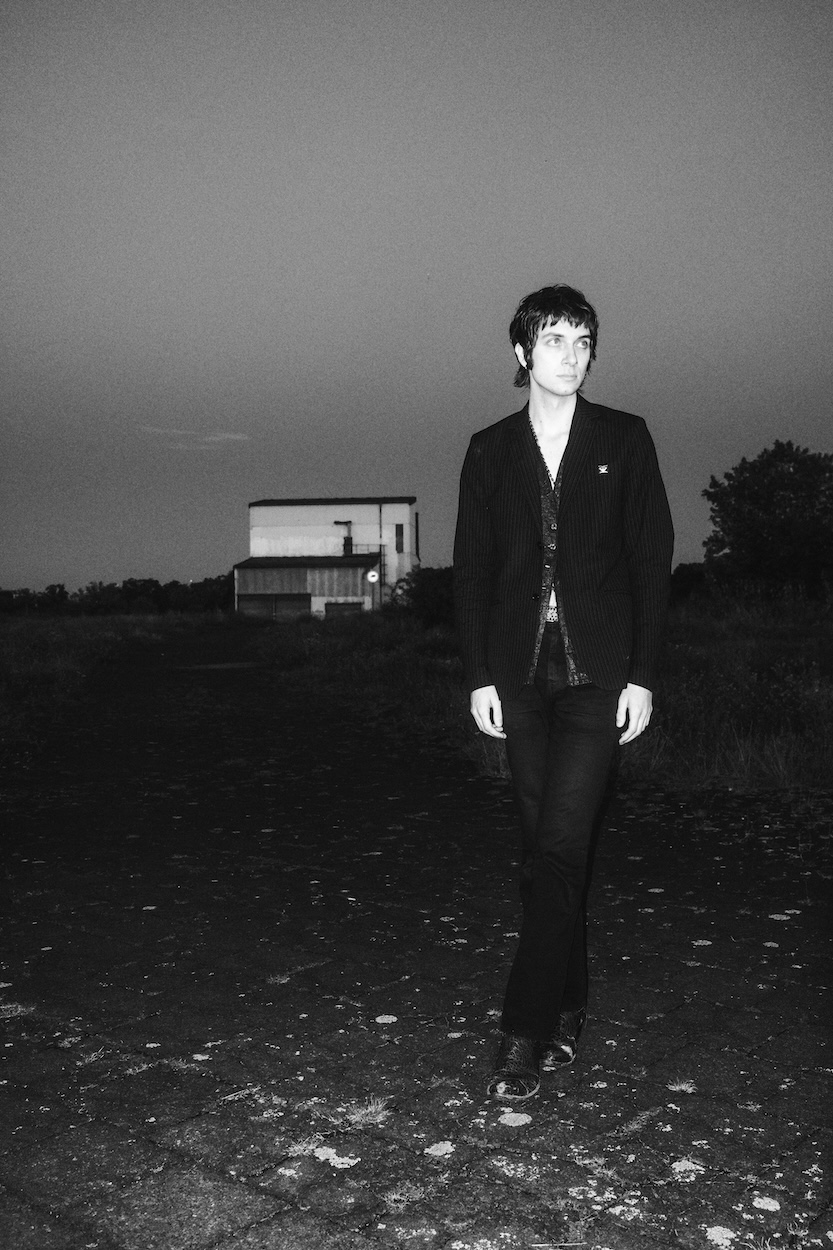
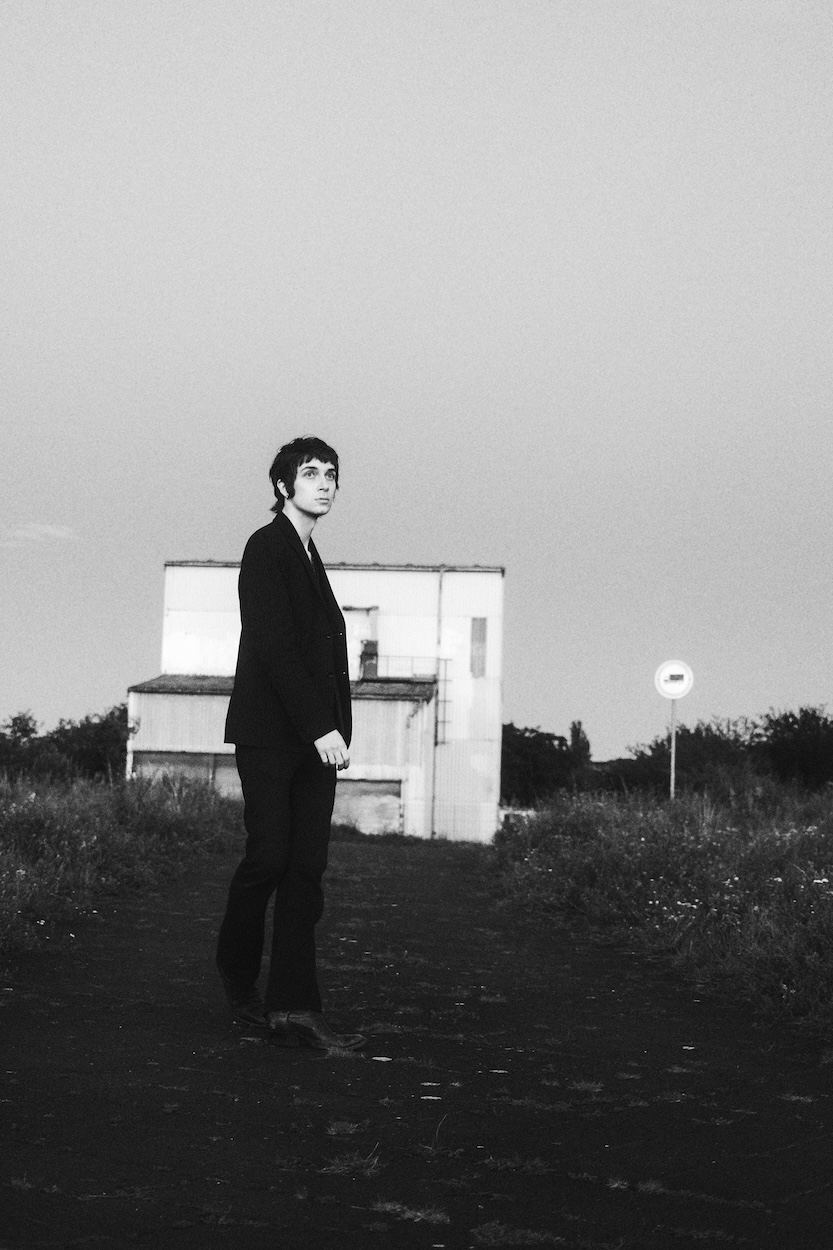
N: I have many friends who don’t like performing live as much as I do. They arrive at the venue, put their stuff down, leave to go to the hotel and only come back for the gig in the evening. – I love all of it: The talking with the people, connecting with those at the merch stand, or backstage at a festival. Also, people watching. And I am not even that much of a “connector”-type-person. I have gigs, that are my favourite gigs – but that often has more to do with the things happening around it. This year for example we ended up playing on the Fusion. Before that I was always saying: Take me anywhere, just not to the Fusion! But what really stuck with me was that there is no advertisement anywhere at that festival. There was not a single brand logo in sight. I thought, this is what it must have looked like at the festivals my mom talked to me about.
Regarding my absolute favourite, it has to be the final gig of our first tour that took place at the SO36. Before I went on stage I cried backstage, because I thought: I never asked for any of this and it’s still one of my childhood dreams come true. I knew the SO36 by name of course, from watching all these documentaries when I was 16 or 17 years old.The concert was sold out, and when I looked out on stage… that really was a goosebump moment.
N: The upcoming album is called Super Sonic Youth. It’s describing exactly this moment. I just turned 25. The first half of my twenties is over. It was the point where I was really starting to reflect on how I want to put these coming five years into use. I noticed that things I used to consider good and normal had shifted. When I started writing the album about one year ago, I was really exhausted. It’s about this moment, of being lost in this world, with what happened within these last years and existing throughout all of that. That might not be put as nicely as I did for Kristall, Kristall, but I am addressing a similar feeling.
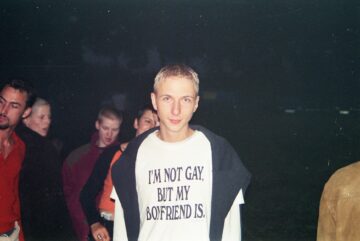
Christian Stemmler — ANFANG / BEGINNING: BERLIN 1994–99
ANFANG / BEGINNING: BERLIN 1994–99 captures the raw pulse of post-wall Berlin, a city in…
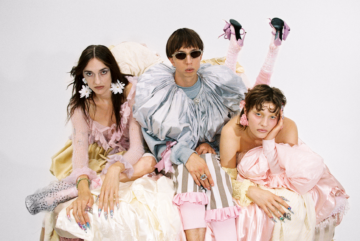
WEEKEND MUSIC PT. 70: IN CONVERSATION NINA AND LOTTA FROM BLOND
“We’re just loud by nature. So our topics naturally come out loud too.”
WEEKEND MUSIC PT. 69: IN CONVERSATION WITH KING PRINCESS
King Princess grew up in New York and has already left their mark on the music scene at…
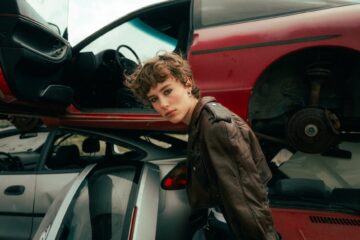
WEEKEND MUSIC PT. 68: IN CONVERSATION WITH PAULA ENGELS
Shortly after releasing her debut album, "Kommt von Herzen", we met Paula Engels to…
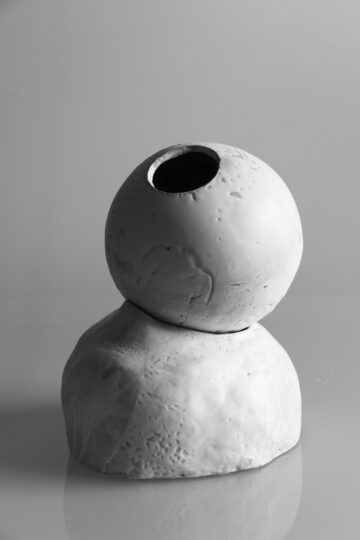
ARTISTS TO WATCH
EMI MIZUKAMI, SVEN DURST, IVANA VLADISLAVA, PAUL FERENS, STEPHAN, GRUNENBERG, CATO…
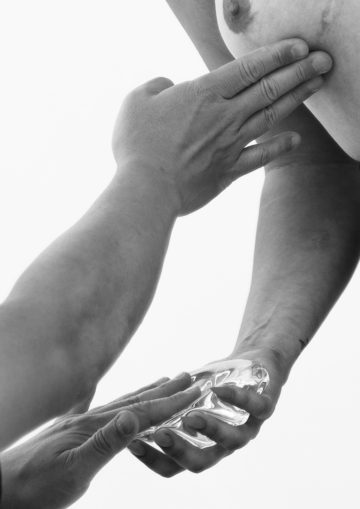
OONA on Fighting for Self-Sovereignty “If My Pussy Could Talk, What Would She Like to Say?”
OONA on Fighting for Self-Sovereignty:…